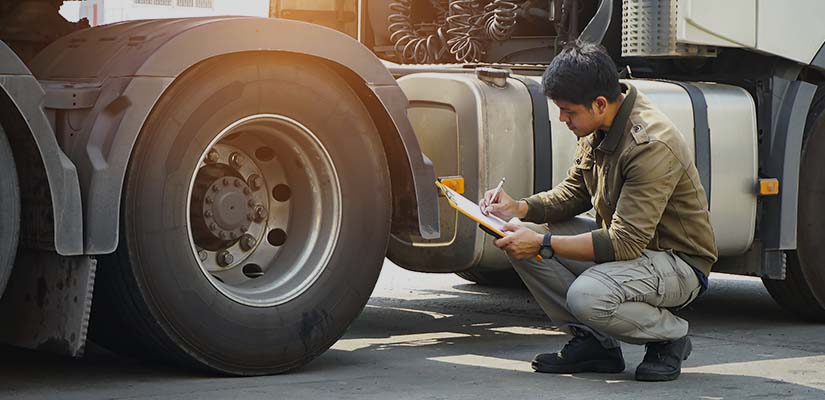More than four million commercial driver’s license holders are subject to regulation by the Federal Motor Carrier Safety Administration (FMCSA), which was established by the Federal Motor Carrier Safety Improvement Act of 1999. The agency’s main mission is to reduce crashes, injuries, and fatalities involving large trucks and buses. The agency carries out this mission with a set of rules called FMCSR.
The Federal Motor Carrier Safety Regulations (FMCSR) set standards for the operation of commercial motor vehicles in interstate commerce. Whether you’re a driver, a dispatcher or manager, a trainer, or even a hiring manager, these FMCSA rules apply to you.
What is the FMCSA?
The FMCSA is an agency within the U.S. Department of Transportation (DOT) that works to reduce the number of crashes involving large trucks and buses. FMCSA safety programs save hundreds of lives and prevent thousands of injuries on U.S. roadways every year.
FMCSA regulations provide minimum standards for the operation of commercial motor vehicles in interstate commerce, covering all personnel and entities involved. FMCSA rules run the gamut from registration and financial responsibility to driver qualification, hours of service, vehicle maintenance, and safety. These regulations apply to everyone involved in commercial motor vehicle operation: drivers, driver trainees, dispatchers, trainers, supervisors, fleet managers, and others.
History
The first federal truck safety rules were issued in 1936 by the Bureau of Motor Carriers, part of the Interstate Commerce Commission (ICC). In 1966, the DOT was founded to make national transportation efficient and economical. A new agency founded within the DOT, the Federal Highway Administration (FHWA), took over the charter of truck and bus safety on U.S. highways.
With the passage of the Motor Carrier Safety Improvement Act of 1999, Congress established the FMCSA as a new, independent agency within the DOT on January 1, 2000. Since then, federal motor carrier regulations have been the charter of the FMCSA.
Purpose
The goal of the FMCSA, as it develops and enforces regulations, is to balance safety and efficiency for commercial motor carriers. The agency partners with the motor carrier industry, safety groups, organized labor, and law enforcement agencies to improve safety, using data to drive and refine regulations.
With safety information systems such as the Safety Measurement System (SMS), an online repository of driver and vehicle safety, inspection information, and investigation results, the FMCSA focuses enforcement efforts on carriers that have demonstrated higher risk. To help raise awareness, the FMCSA creates educational information targeted toward carriers, commercial drivers, and the public.
What is FMCSR?
The Federal Motor Carrier Safety Regulations (FMCSR) are a set of rules intended to reduce the number of accidents and fatalities caused by commercial motor vehicles. These federal trucking regulations set the minimum standards for the operation of commercial carriers in interstate commerce.
History
The first Federal Motor Carrier Safety Regulations were published in 1937. Code of Federal Regulations Title 49, which covers transportation, began publication in 1938. In 1992, the Federal Highway Administration (FHWA) began working with carriers and other stakeholders to develop more modern, consistent, comprehensive safety laws.
Purpose
What is FMCSR designed to accomplish?
Over the years, the FMCSR trucking regulations have evolved quite a bit, but the mission remains the same: to make commercial motor vehicles safer in interstate commerce. For the purposes of these regulations, interstate commerce includes transportation, trade of goods, or other traffic between states or across the U.S. border.
These regulations apply to anyone involved with this kind of operation—not just the drivers, but fleet managers, dispatchers, trainers, supervisors, and so on. The regulations cover diverse requirements for registration, financial responsibility, driver qualification, hours of service, vehicle maintenance, and safety.
Who is subject to Federal Motor Carrier Safety Regulations?
FMCSR apply to all employers, employees, and commercial motor vehicles that transport goods or passengers in interstate commerce. It doesn’t matter whether the vehicles are owned, leased, rented, or borrowed, it still applies when the vehicle is driven without a load.
For the purposes of the regulations, an employer is anyone who owns or leases a commercial motor vehicle as part of a business engaged in interstate commerce, or who assigns employees or independent contractors to operate such a vehicle and who can directly affect the safety of these commercial motor vehicles. This includes drivers, mechanics, and freight loaders.
These regulations apply to any vehicle with a weight of 10,001 pounds or greater, even during the times they are used for non-commercial purposes.
You are subject to FMCSA regulations if you operate a commercial vehicle across state lines in any of the following scenarios:
- The gross vehicle weight rating or gross combination weight rating is 10,001 pounds or more.
- The vehicle is designed to carry between 9 and 15 passengers for compensation of any kind.
- The vehicle is designed to carry 15 or more passengers, regardless of compensation.
- You are transporting hazardous materials.
Managing a fleet is no easy feat. Let Lytx help you improve fleet performance all while reducing costs.
FMCSR is a compliance challenge that you must face if your fleet engages in interstate commerce. Our Lytx compliance services can help you improve Compliance, Safety, Accountability (CSA) scores, reduce risk, comply with Electronic Logging Device (ELD) mandates, and lower operating costs.
Lytx® integrated, web-based tools help automate your processes, taking the tracking and guesswork out of DOT compliance management. Our individual safety DOT compliance services can be combined as needed to ensure that all of your bases are covered. To learn more about how Lytx Compliance Services can help you, contact us.
